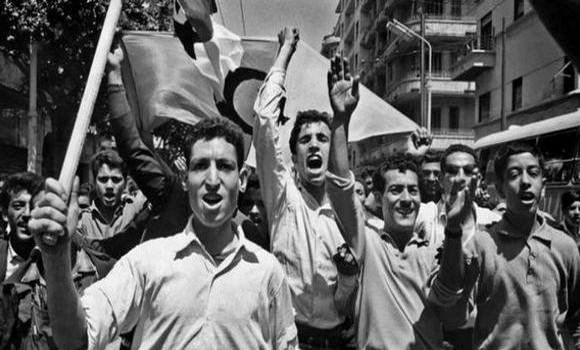This important historical halt heralded a new era, that of the self-determination of a people who succeeded in imposing their will and achieving their independence, by paying a heavy price, in the face of an occupier who believed itself invincible.
The ceasefire came into effect on this historic date, after the signing, on March 18, 1962, of the Evian Accords between representatives of the Provisional Government of the Algerian Republic (GPRA) and those of the French Government.
According to historians, the outbreak of the armed struggle on November 1, 1954 never closed the door to negotiations for the independence of Algeria, the first contacts between the National Liberation Front (FLN), the unique representative of the Revolution, and the French Government, having secretly begun in 1956, in particular within the framework of the informal talks between the external delegation of the FLN and the French Minister of Foreign Affairs, Christian Pineau.
After a first contact in Cairo, the two parties met on July 26, 1956, in Yugoslavia where the Algerian delegation was led by Mohammed Yazid and Ahmed Francis, while the French party was led by Pierre Commin.
The first round of negotiations between the two delegations ended in failure in June 1960 when the French government demanded the surrender of the National Liberation Army (ALN), a request rejected by the GPRA.
On December 11, 1960, popular demonstrations in Algeria urged the United Nations General Assembly to put the Algerian question on its agenda, forcing the French side, under international pressure, to return to the negotiating table.
Formal talks continued for a year until the ceasefire was declared.
The Algerian delegation to the Evian negotiations was led by the Minister of Foreign Affairs of the Provisional Government of the Algerian Republic (GPRA), Krim Belkacem, while the French delegation was led by Louis Joxe. There were two rounds of negotiations in Evian.
And after bitter negotiations, led by an Algerian delegation convinced of the rightness of the national cause, the total independence of Algeria is recognized in the absolute integrity of its territory.
The ceasefire took effect on March 19, 1962, followed by the holding of a self-determination referendum on July 1, during which Algerians voted overwhelmingly in favor of independence, which was proclaimed on July 5, 1962.
This precious independence was not an end in itself, as the president of the GPRA, Benyoucef Benkhedda, had affirmed in his speech to the Algerian people on March 18, 1962, announcing the end of military operations, and in which he declared that “independence is not an end in itself, but only a means which will allow the transformation of the situation of our people”.
“Our mission is to build a new society that reflects the image of young free Algeria, the Algeria that every citizen is called upon to build”, he stressed, adding that “all these missions encourage us to redouble our efforts and to be vigilant to thwart the maneuvers of provocateurs and sowers of discord”.
“It is this same path that today’s Algeria has chosen to take through a new process which constitutes the real beginning of the construction of a new Algeria, aware of the magnitude of the challenges facing it. is confronted, which it must overcome and which also knows how to preserve the legacy of millions of Chouhada”, had previously indicated the President of the Republic.
In a message sent last year, on the occasion of the celebration of Victory Day, the President of the Republic, Mr. Abdelmadjid Tebboune recalled that “the announcement of the ceasefire after the negotiations d’Evian, was a victory and sounded the death knell for the injustice and barbarity of the aggressor lulled by the illusion of distorting our identity and erasing our civilization, our culture and our heritage, but it was without count on the will of a free people determined to remain free and authentic”.
He added that “on this memorable day, a prelude to victory, the Algerian people drew strength and determination from it to face the impact and the effects of a large-scale destruction, a violent massive destruction which bears witness to the heinous crimes of colonialism which cannot be forgotten or extinguished by prescription”.
President Tebboune had also affirmed that “Algeria has succeeded in recent years in regaining the place that befits it and its voice is now audible at regional and international levels despite hostile inclinations”, stressing that “the real construction of the Algerian Republic has already begun and that the people today are sovereign”.





